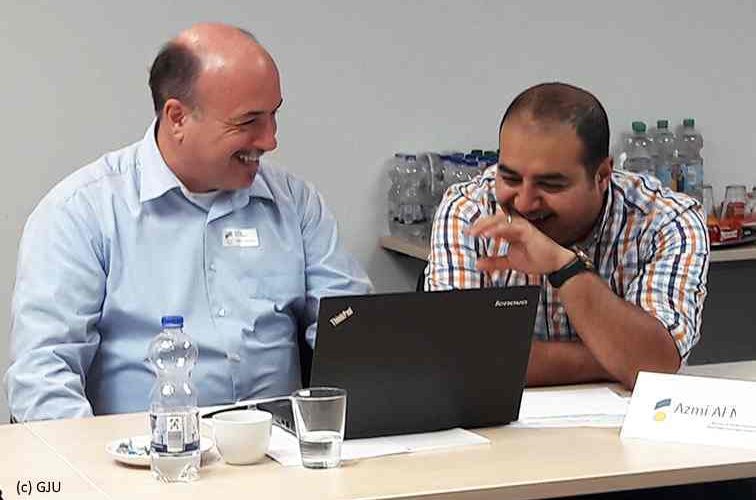During the winter semester 2018-2019, the Arab World section carried out an Internet exchange programme (tele-collaboration”) with the German Jordanian Universit , during which original ideas in the field “Social entrepreneurship” and intercultural skills were developed. Tele-collaboration is a form of network-based language teaching which emerged in language teaching in the 1990s. It refers to the pedagogic practice of bringing together classes of foreign language learners through computer-mediated communication for the purpose of improving their language skills, intercultural communicative competence and digital literacies.
The Telecollaboration have a lot of strength like :
- It provides learners with an opportunity to have clearer conceptions about other cultures;
- It promotes cross-cultural understanding and challenges or rejects stereotypes;
- It presents a flexible and well-structured teaching modells.
But it also has some weakness like:
-Requires a greater deal of coordination between the two partnering institutions;There are risks associated with misinterpreting cultures, such as:
- Mis-interpretation can emerge by over-generalizing experience made with single students, who might be seen as representatives of their culture.
- Differences between cultures may become pivotal, and students may fail to note any existing similarities;
Professor Reem and Prof. Gaiser organized the collaboration well and we, students, really learned a lot from this wonderful and exceptional experience.
